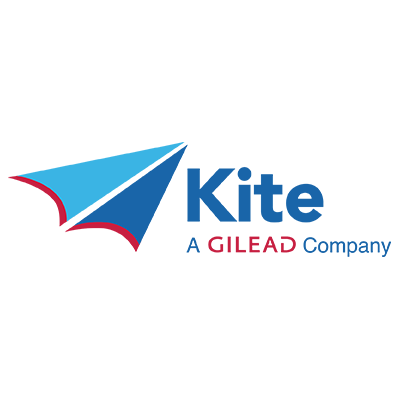SANTA MONICA, Calif.– Kite, a Gilead Company (Nasdaq: GILD), today announced updated, four-year overall survival (OS) data from the pivotal ZUMA-3 study evaluating the CAR T-cell therapy Tecartus® (brexucabtagene autoleucel) in adult patients with relapsed or refractory B-cell acute lymphoblastic leukemia (R/R B-ALL). The findings showed a median OS of 25.6 months and a four-year OS rate of 40% (95% CI, 28-52) in all treated patients with a safety profile consistent with that observed in the three-year analysis. The results were presented today in a poster presentation (Abstract #6531) at the 2024 American Society of Clinical Oncology (ASCO) Annual Meeting.
“B-cell acute lymphoblastic leukemia is a rare and aggressive form of blood cancer associated with poor prognosis – with a median survival of less than eight months in those with relapsed or refractory disease – so to see 40% of these patients treated with one infusion of Brexu-cel still alive after four years is meaningful indeed,” said Olalekan O. Oluwole, MBBS, MD, MPH, Associate Professor of Medicine, Hematology/Oncology at Vanderbilt University and primary investigator for the study. “Additionally, the duration of response and survival benefits were demonstrated regardless of the patients’ subsequent allogeneic stem cell transplant status.”
In the poster being presented, patients treated with the pivotal dose of Tecartus in the pooled analysis Phase 1 and 2 (n=78), the median follow-up time was 53.6 months (range 44.7-82.3) with 4-year minimum follow-up. Among all treated patients, the median OS was 25.6 months, and 47 months in patients with complete remission or complete remission with incomplete hematologic recovery (n=57), the primary endpoint. In patients <26 years (n=15), median OS (95% CI) was 23.2 months (9.0-NE) and was 26.0 months (15.9-NE) in patients ≥26 years (n=63), OS was a key secondary endpoint. Median OS (95% CI) in patients with one prior therapy (n=15) was 60.4 months (7.6-NE) and was 25.4 months (15.9-47.0) in patients with ≥2 prior therapies (n=63).
Medians for OS (95% CI) in patients with (n=38) and without (n=40) prior blinatumomab were 15.9 (8.3-26.0) and 60.4 months (18.6-NE), respectively (unbalanced patient characteristics and small numbers limit interpretation of these results). Median OS (95% CI) was 36.3 months (10.2-NE) in responders who went on to subsequent allogeneic stem cell transplant (n=14) and 60.4 months (23.2-NE) in those who did not (n=43). No new adverse events or deaths occurred since the three-year analysis. Rates of infection were Grade ≥3 and higher in patients over 26 years and in patients with prior blinatumomab.
“We are pleased that Tecartus continues to demonstrate improved survival outcomes after four years of follow-up in adult patients who would otherwise have very few treatment options,” said Ibrahim Elhoussieny, MD, Vice President, Medical Affairs, Kite. “Notably, Tecartus numerically improved overall survival particularly for patients when given in earlier lines of therapy, and is an important treatment option for the large portion of adult B-ALL patients who relapse or are refractory to other treatments. We look forward to continuing to improve survival in more people with this challenging blood cancer.”
ZUMA-3 is an ongoing international multicenter (US, Canada, Europe), single arm, open label, registrational Phase 1/2 study of Tecartus in adult patients (≥18 years old) with ALL whose disease is refractory to or has relapsed following standard systemic therapy or hematopoietic stem cell transplantation. The primary endpoint is the rate of overall complete remission or complete remission with incomplete hematological recovery by central assessment. Duration of remission and relapse-free survival, overall survival, minimal residual disease (MRD) negativity rate, and alloSCT rate were assessed as secondary endpoints.


